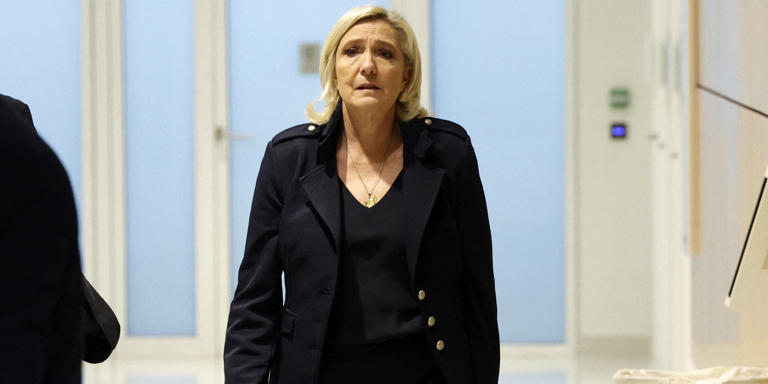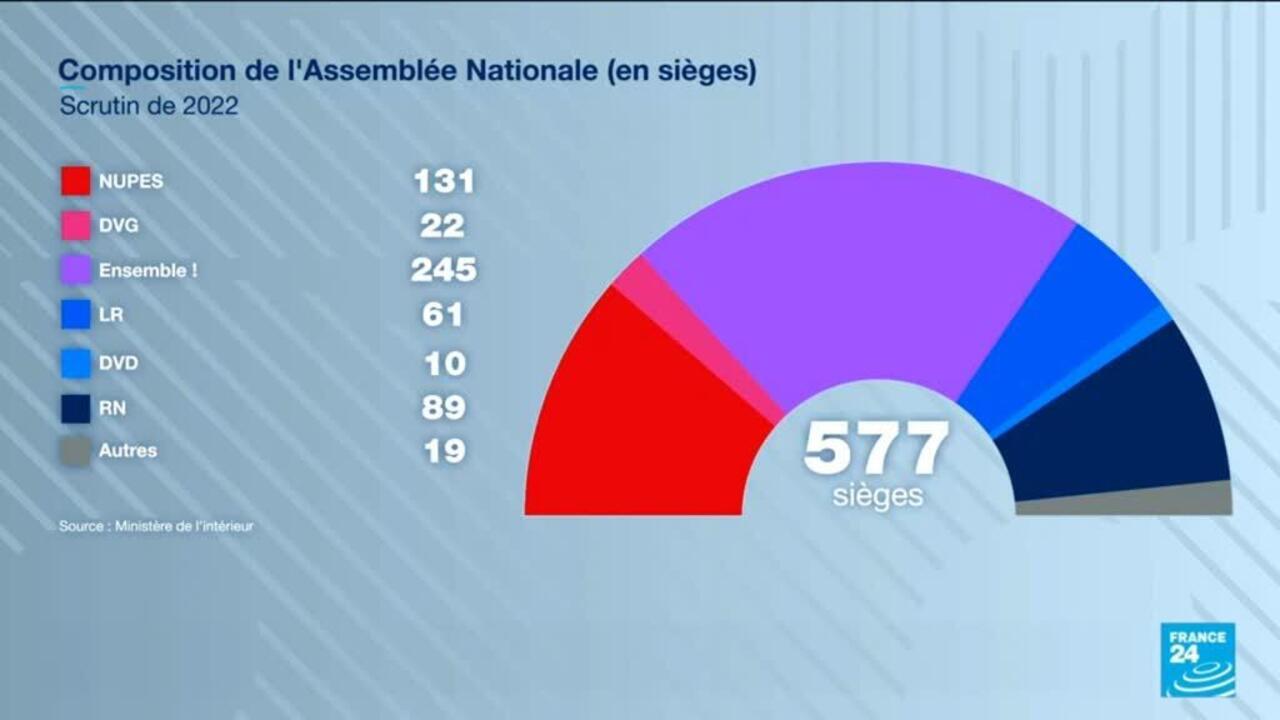Post-G7 Meeting: The Missing Discussion On Tariffs

Table of Contents
The Economic Impact of Untouched Tariffs
The absence of meaningful discussion on tariffs at the G7 summit has profound economic ramifications. The current tariff landscape, characterized by protectionist measures and retaliatory actions, fuels inflationary pressures, disrupts supply chains, and disproportionately harms developing nations.
Inflationary Pressures
Tariffs directly contribute to inflation by increasing the cost of imported goods. This increased cost is then passed on to consumers, reducing their purchasing power and dampening economic growth.
- Increased import costs: Tariffs raise the price of imported goods, making them more expensive for consumers and businesses.
- Reduced consumer purchasing power: Higher prices lead to decreased consumer spending, impacting overall economic demand.
- Impact on specific industries: Sectors reliant on imported inputs, such as agriculture and manufacturing, face increased production costs, potentially leading to job losses and reduced competitiveness. For example, the tariffs on steel have significantly increased the cost of construction projects worldwide.
Supply Chain Disruptions
Tariffs exacerbate existing supply chain vulnerabilities, leading to further disruptions and increased uncertainty.
- Increased shipping costs: Tariffs contribute to higher transportation costs, adding to the overall cost of goods.
- Reduced trade volumes: The imposition of tariffs discourages international trade, leading to reduced volumes of goods and services exchanged globally.
- Impact on global manufacturing and production: Supply chain disruptions cause delays, shortages, and increased production costs, affecting manufacturing and production worldwide. This is particularly evident in the tech industry, dependent on global supply chains for components.
Impact on Developing Nations
Developing nations bear a disproportionate burden of tariff barriers imposed by wealthier nations.
- Reduced export opportunities: Tariffs limit the access of developing countries' products to international markets, hindering their economic growth.
- Hindered economic growth: Reduced export revenue hampers investment in infrastructure, education, and healthcare, perpetuating the cycle of poverty.
- Impact on poverty and inequality: The economic consequences of tariffs exacerbate existing inequalities within and between nations, further marginalizing vulnerable populations.
Missed Opportunities for Tariff Reform
The G7 summit missed a critical opportunity to foster meaningful tariff reform and address the growing challenges of global trade.
Lack of Concrete Agreements
The absence of concrete agreements or commitments regarding tariff reduction is deeply concerning.
- Specific examples of topics avoided: Discussions on reducing agricultural tariffs, phasing out non-tariff barriers, and establishing a more predictable trade environment were noticeably absent.
- Missed opportunities for bilateral or multilateral agreements: The summit failed to provide a platform for negotiating new trade deals or strengthening existing agreements to reduce tariffs.
The Role of Geopolitical Tensions
Geopolitical tensions and power dynamics significantly influenced the G7's inability to reach consensus on tariff issues.
- Impact of trade wars: The lingering effects of previous trade wars and protectionist measures continue to hinder cooperation on tariff reduction.
- Existing sanctions: The imposition of sanctions by some G7 members creates an environment of distrust and undermines efforts towards tariff reduction.
- Disagreements between member nations: Differing national interests and priorities among G7 members hampered the ability to reach a common position on tariffs.
Alternative Trade Policy Discussions
The focus shifted away from tariff reduction towards other trade policy discussions.
- Focus on other areas (e.g., climate change, digital economy): The summit prioritized discussions on climate change, the digital economy, and other issues, overshadowing the importance of tariff reform.
- Trade diversification strategies: The emphasis on trade diversification strategies, while important, did not adequately address the core issue of reducing existing tariff barriers.
Potential Future Consequences of Inaction on Tariffs
The failure to address tariff issues at the G7 summit carries significant risks for the future.
Escalation of Trade Wars
The unresolved tariff issues increase the risk of future trade disputes and escalating trade wars.
- Examples of potential conflicts: Unresolved tariff disagreements could easily escalate into retaliatory measures, triggering a new round of trade wars.
- The impact on investor confidence: Uncertainty surrounding trade policies undermines investor confidence, discouraging investment and hindering economic growth.
- Global market instability: Escalating trade tensions could lead to greater global market instability, potentially causing financial crises.
Fragmentation of Global Trade
The lack of cooperation on tariffs risks the fragmentation of the global trading system.
- Impact on globalization: A more fragmented trading system would reverse the gains from globalization, hindering economic growth and cooperation.
- Reduced cross-border collaboration: A decline in trust and cooperation between nations would limit cross-border collaboration on other important issues.
- Impact on international organizations: The effectiveness of international organizations, such as the WTO, could be undermined by the lack of progress on tariff reduction.
Conclusion: The Urgent Need for Global Tariff Cooperation
The G7 summit's failure to address global tariffs comprehensively carries serious economic and geopolitical consequences. The lack of concrete commitments to reduce trade barriers will likely lead to increased inflation, supply chain disruptions, and a further widening of the economic gap between developed and developing nations. The potential for escalating trade wars and a fragmented global trading system poses a significant threat to global economic stability.
The post-G7 silence on tariffs cannot continue. We must demand action from our leaders to foster dialogue and collaboration to reduce trade barriers and mitigate the negative impacts of global tariffs. Contact your representatives, advocate for tariff reform, and share this article using #G7Summit #GlobalTariffs #TradePolicy to amplify the call for urgent global tariff cooperation.

Featured Posts
-
 23 Marzo 2024 Almanacco Santo Del Giorno Compleanni E Proverbio
May 27, 2025
23 Marzo 2024 Almanacco Santo Del Giorno Compleanni E Proverbio
May 27, 2025 -
 Fire Country S3 E16 Dirty Money Preview What To Expect
May 27, 2025
Fire Country S3 E16 Dirty Money Preview What To Expect
May 27, 2025 -
 Max Payne A Retrospective On The Film Series
May 27, 2025
Max Payne A Retrospective On The Film Series
May 27, 2025 -
 Lagarde Kueresel Ticaret Gerilimleri Ve Artan Enflasyon
May 27, 2025
Lagarde Kueresel Ticaret Gerilimleri Ve Artan Enflasyon
May 27, 2025 -
 Tracker Season 2 Episode 13 Where And When To Watch
May 27, 2025
Tracker Season 2 Episode 13 Where And When To Watch
May 27, 2025
Latest Posts
-
 Cinq Ans D Ineligibilite Pour Marine Le Pen Une Decision Judiciaire Divisive
May 30, 2025
Cinq Ans D Ineligibilite Pour Marine Le Pen Une Decision Judiciaire Divisive
May 30, 2025 -
 Strategie Du Rn A L Assemblee Nationale Le Theme Des Frontieres Face Au Defi Lfi
May 30, 2025
Strategie Du Rn A L Assemblee Nationale Le Theme Des Frontieres Face Au Defi Lfi
May 30, 2025 -
 L Assemblee Nationale Comment Le Rn Utilise La Question Des Frontieres Contre Lfi
May 30, 2025
L Assemblee Nationale Comment Le Rn Utilise La Question Des Frontieres Contre Lfi
May 30, 2025 -
 Situation Critique A Florange Les Parents De Bouton D Or Denoncent Le Manque De Remplacement Et La Presence De Rats
May 30, 2025
Situation Critique A Florange Les Parents De Bouton D Or Denoncent Le Manque De Remplacement Et La Presence De Rats
May 30, 2025 -
 Rn Vs Lfi A L Assemblee Nationale La Strategie Des Frontieres Face A La Bordelisation
May 30, 2025
Rn Vs Lfi A L Assemblee Nationale La Strategie Des Frontieres Face A La Bordelisation
May 30, 2025
